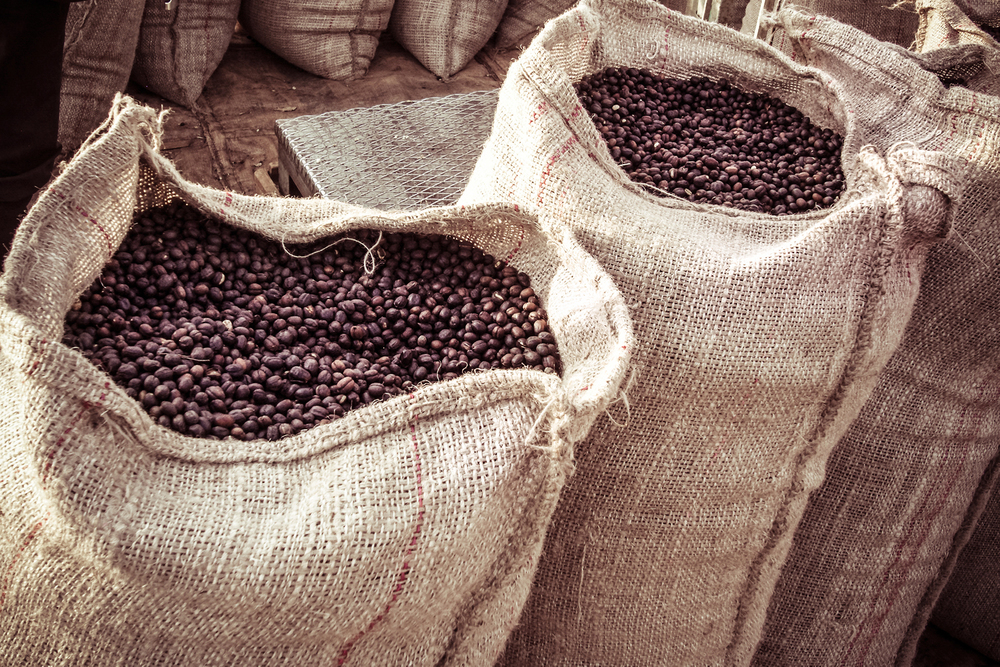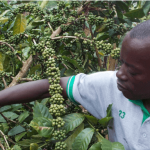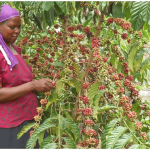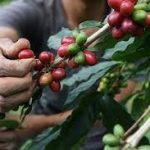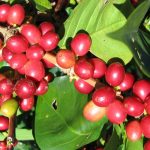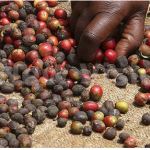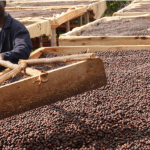A digital farmer profiling initiative, which enables coffee to be traced back to its roots, is paying off for smallholder farmers in Uganda. NUCAFE’s David Muwonge describes how coffee produced under the scheme is fetching far higher prices, revealing the strong potential of geo-referencing as a marketing tool to guarantee authenticity and origin.
The design of a geospatial database is helping Ugandan coffee farmers to provide traceable products, ensuring access to new markets and higher prices. With support from CTA, the National Union of Coffee Agribusinesses and Farm Enterprises (NUCAFE) has generated farmer profiles and maps of coffee farms as part of a targeted marketing strategy. NUCAFE represents 210 coffee farmers and farmers’ organisations – totalling 205,120 farming families – by advocating in their favour, facilitating their access to services and resources and by promoting farmers’ access to local and international markets. Seeing how proof of origin influences market prices for coffee, NUCAFE is investing in technology that will secure product traceability.
Before its collaboration with CTA, NUCAFE set up an Excel database with basic member information, based on manually uploaded questionnaires. Realising the limited capacity of this database, NUCAFE and CTA collaborated to develop a spatial data management system. Between June 2017 and April 2018, farmers were profiled using a tablet-based questionnaire that captures the coffee farm family details, production information and GPS location of the household and farm. With data privacy consent, the data was transferred to the NUCAFE servers, using ONA, and processed using QGIS and ArcGIS geographical information systems software to generate maps of farm locations and individual coffee farms field maps. To obtain higher resolution images of the individual farms, to be used for traceability and delivery of agricultural advisory services, the GPS coordinates are used to produce flight plans for drones.
In the second phase of the project, this improved database will help to generate added value by effectively providing each batch of coffee with a ‘passport’ in the form of a QR-code, which proves its authenticity and origin. This passport includes information about the farmer who grew the beans, the farmer group, geographical farm location, the product itself, date of delivery to the warehouse, and details of the coffee’s subsequent journey along the supply chain.
Traceability pays off
Within six months after its launch, the initiative has already produced promising results. International buyers from Italy and South Korea have offered higher prices for coffee produced by the profiled farmers, paying €3.51 per kg instead of the less than €2.16 generally paid for untraceable coffee of similar quality. The premium increase of 24 % on the basic price is directly related to product traceability, which ensures consumers that coffee farmers truly benefit from their purchase and that coffee beans carry specific geological and geospatial quality markers. For a typical Arabica coffee farm of 0.4 hectares producing an average 600 kg each year, that translates into an additional annual income of €850.-.
“We have benefited from the additional income we get from our coffee being traceable and certified by being able to take our children to school and working on the community health centre,” says Mr Gibezi Yunus a farmer from Bufumbo Organic Cooperative Association.
NUCAFE member Bufumbo Organic Coffee Farmers Association has been quick to use the database to its advantage. It used data about its farmers and their coffee farms from the NUCAFE spatial database, for a critical external audit for organic and UTZ (an international standard for fair, sustainable and transparent production) certification. The association was able to obtain both certificates, and subsequently sold 19.8 metric tonnes (MT) of organic/UTZ certified coffee to an Italian buyer for roasting, and a further 160 MT to other buyers. Following this success, other farmers are motivated to change their practices to obtain certificates and coffee farmers’ associations are expressing interest to use the database for certification. As there are additional compliance costs and a conversion period associated with organic certification, NUCAFE sensitises its members on the requirements and supports them in securing resources from internal and external sources for the process.
At a practical level, the geo-referenced data has enabled extension workers, businesses and hub managers working with the coffee farmers’ associations to improve logistics planning. Having a detailed overview of the territory and location of farmers makes it easier for them to schedule coffee bean collection, effective agricultural advisory support, and supplementary services. Awareness raising on the value of drought insurance, training in climate-smart agriculture, and positioning of strategically located wet processing machines in Mabira Coffee Farmers Association are among the services delivered by NUCAFE.
Upscaling digital profiling
Buoyed by its early success with the digital database, NUCAFE has received more than €1.2 million from the European Union to help establish geographical indications for coffee in six member cooperatives in the Rwenzori region during the next four years (2018 to 2022). Targeting 20,000 coffee farmer households, many located in the remote area of the Rwenzori Mountains, the initiative seeks to obtain organic, fair trade and geographical indicator certification, using GIS-based tools. The ultimate goal is to secure improved livelihoods, job creation and poverty alleviation for coffee farming families. Growing awareness of the potential benefits of being profiled is starting to attract new members to NUCAFE. Furthermore, the state-run Uganda Coffee Development Authority (UCDA) wants to use the same profiling methodology for all Ugandan coffee farmers to facilitate service provision and distribution of inputs, and to upgrade speciality branding of Ugandan coffee on the international market.
Source : ICT UPDATE

